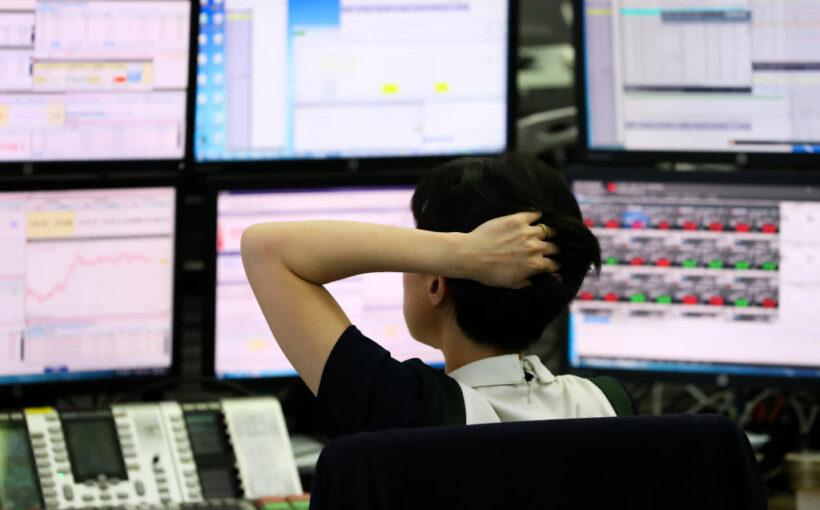- Global stock markets wobbled in recent weeks as bond yields rose, driven by optimism in the vaccine rollout for Covid-19 and the resumption of consumption spending.
- James Sullivan, head of Asia ex-Japan equity research at JPMorgan, says the investment bank expects cyclical and defensive stocks to lead the market higher in the medium-term instead of tech stocks.
- JPMorgan is also positive on consumer stocks. "We are seeing very strong consumption trends across the board," according to Sullivan.
Investment bank JPMorgan expects cyclical stocks to lead the market higher in the medium- to long-term as the business cycle improves.
"You're going to see cyclicals and more defensive names continue the rally after we get past this period of adjustment," said James Sullivan, head of Asia ex-Japan equity research at JPMorgan.
Cyclical stocks are companies whose underlying businesses tend to follow the economic cycle of expansion and recession. Some of these include sectors such as finance, energy and industrial. Defensive stocks — such as health care and consumer staples — typically provide consistent earnings and dividends regardless of stock market conditions.
Global stock markets wobbled in recent weeks as bond yields rose, driven by optimism in the vaccine rollout for Covid-19 and the resumption of consumption spending.
The move fueled expectations of higher inflation and investors worried it would prompt central banks to raise interest rates. Higher interest rates can knock down stocks with relatively high valuations.
Interest rates concerns also accelerated a market rotation — as investors took money out of expensive tech and growth stocks and put them into other cyclical sectors such as finance, energy and industrial. Stocks have rebounded in recent sessions but analysts still expect market conditions to remain volatile.
"What we've seen is a very, very sharp rebound in value, you're likely to see a bounce in growth as a result of the extremity of that market move," he said Wednesday on CNBC's "Street Signs Asia."
"On a medium-to-long term basis, though, we still see cyclicals and defensives leading this market higher," Sullivan added.
JPMorgan positive on financials, consumer stocks
Steepening of the yield curve is positive for the overall profitability of large financial institutions, Sullivan explained, adding that the investment bank is overweight for both the banking and insurance sectors. Financial companies typically benefit from rising interest rates as it expands their profit margin.
A steepening yield curve occurs when rates for longer dated bonds rise faster than interest rates for shorter dated bonds and typically indicates that investors expect rising inflation and stronger economic growth.
JPMorgan is also positive on consumer stocks, according to Sullivan. "We are seeing very strong consumption trends across the board," he said, adding the bank "would be positive on both financials and consumer as a result."
As economies around the world reopen, consumption spending is expected to resume on the back of better growth prospects and stimulus measures. Overnight in the U.S., President Joe Biden signed a massive $1.9 trillion coronavirus relief package that will put cash into the hands of Americans.
Tech: Valuations 'reasonably high'
Technology stocks were a big beneficiary in the markets last year as the coronavirus pandemic knocked global growth off track due to lengthy lockdowns around the world. Investors and traders, who typically turn to less risky assets in order to weather the market volatility, poured money into tech and software stocks which benefited from the lockdown.
"Overall tech leadership of markets was taken to an extreme last year," Sullivan said, adding that despite some of the recent sell off in tech names, "we are seeing valuations that are reasonably high."
JPMorgan's argument is that within the tech space, investors should rotate out of platform names and move into companies that sell software as a service and into the semiconductor space given the ongoing global chip shortage.
"We don't necessarily see the large platforms leading these markets higher for the rest of this year," Sullivan added.
Source: Read Full Article
